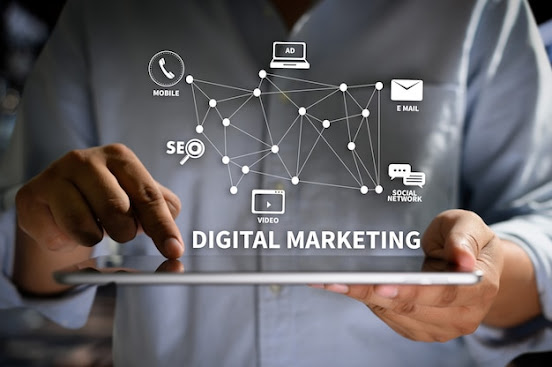How Does Digital Marketing Work? A Guide to Marketing in Today's Digital World | Robert Leslie Lee
In today's fast-paced and technology-driven world, digital marketing has become a crucial aspect of any successful marketing strategy. With the widespread use of the internet and digital devices, businesses must adapt their marketing efforts to reach and engage with their target audience effectively. In this comprehensive guide, we will explore what digital marketing entails and provide valuable insights into the key components and strategies that drive success in the digital realm.
Understanding Digital Marketing
Digital marketing encompasses all marketing activities that utilize digital channels and technologies to promote products or services. Unlike traditional marketing methods, digital marketing leverages online platforms, such as search engines, social media, email, websites, and mobile apps, to connect with potential customers. It involves a range of tactics, including search engine optimization (SEO), content marketing, social media marketing, email marketing, pay-per-click (PPC) advertising, and more.
The Importance of Digital Marketing
Digital marketing has become increasingly important due to the widespread adoption of digital devices and the internet. With billions of people accessing the internet daily, businesses have a vast opportunity to reach their target audience directly. Digital marketing allows for precise targeting, personalization, and measurable results, making it a cost-effective and efficient way to drive brand awareness, generate leads, and increase sales.
Key Components of Digital Marketing
a. Search Engine Optimization (SEO): SEO focuses on improving a website's visibility and organic rankings on search engine results pages (SERPs). By optimizing website content, structure, and technical aspects, businesses can attract organic traffic and increase their online visibility.
b. Content Marketing: Content marketing involves creating and distributing valuable and relevant content to attract and engage a target audience. Through blog posts, articles, videos, infographics, and more, businesses can position themselves as industry leaders and build trust with their audience.
c. Social Media Marketing: Social media platforms, such as Facebook, Instagram, Twitter, and LinkedIn, offer businesses an opportunity to connect and engage with their target audience on a more personal level. By creating compelling content, running targeted ads, and fostering meaningful interactions, businesses can build brand loyalty and drive website traffic.
d. Email Marketing: Email marketing allows businesses to communicate directly with their audience through personalized and targeted emails. This approach helps nurture leads, build customer relationships, and drive conversions.
e. Pay-per-Click Advertising (PPC): PPC advertising involves placing targeted ads on search engines or social media platforms and paying only when a user clicks on the ad. It is an effective way to drive immediate traffic and increase brand visibility.
Developing a Digital Marketing Strategy
To succeed in digital marketing, businesses must develop a comprehensive strategy tailored to their goals and target audience. A well-rounded strategy involves conducting market research, identifying target audience demographics and behaviors, setting clear objectives, and selecting the appropriate digital marketing channels and tactics. Regular monitoring, analysis, and optimization are also crucial to ensure the strategy remains effective and aligned with business goals.
Measuring and Analyzing Performance
One of the key advantages of digital marketing is the ability to measure and analyze performance in real-time. Businesses can use various tools and analytics platforms to track website traffic, engagement, conversion rates, and other key performance indicators (KPIs). This data provides valuable insights into the effectiveness of marketing campaigns, enabling businesses to make data-driven decisions and optimize their strategies for better results.
In conclusion,
digital marketing has revolutionized the way businesses promote their products and connect with their target audience. By understanding the components and strategies involved in digital marketing, businesses can leverage the power of the digital world to increase brand visibility, drive website traffic, generate leads, and ultimately achieve their marketing objectives.
Currently, Robert Leslie Lee works as a freelance digital marketing consultant, helping businesses of all sizes develop and implement effective digital marketing strategies. He is also a frequent speaker at digital marketing conferences and events, where he shares his insights and expertise with other professionals in the industry.



Comments
Post a Comment